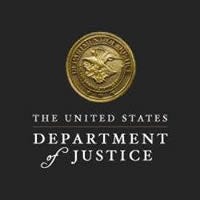Message received, standing by
Welcome to Destabilized, a newsletter about the internet and other forces straining American society.
The biggest story in the world right now is Trump and a growing list of his allies contracting covid-19, and the president receiving treatment at Walter Reed Medical Center.

Saturday morning, Trump’s doctors gave a briefing on his condition that seemed intended to reassure but was at times evasive and unclear. Things became even less clear just after the doctors’ press conference:
Just minutes after the president’s doctors painted a rosy picture of his condition on television, Mark Meadows, the White House chief of staff, gave reporters outside Walter Reed National Military Medical Center a far more sober assessment off camera, calling Mr. Trump’s vital signs worrisome and warning that the next two days would be pivotal to the outcome of the illness.
“The president’s vitals over the last 24 hours were very concerning, and the next 48 hours will be critical in terms of his care,” Mr. Meadows told the reporters, asking not to be identified by name. “We’re still not on a clear path to a full recovery.”
In keeping with the ground rules he had set, Mr. Meadows’s remarks were attributed, in a pool report sent to White House journalists, to a person familiar with the president’s health. But a video posted online captured Mr. Meadows approaching the pool reporters outside Walter Reed after the doctors’ televised briefing and asking to speak off the record, making it clear who the unnamed source was.
That’s wild.
But while Saturday was chaotic, there’s a good chance that within a couple weeks the president will be healthy and back at work. It’s not guaranteed, but it’s the most likely outcome.
Assuming that happens, the most worrying event of this week occurred during the debate when Trump, asked by moderator Chris Wallace if he would condemn white supremacists, said “Proud Boys, stand back and stand by.” Trump then added, “But I'll tell you what: Somebody's got to do something about antifa and the left."

As University of Chicago history professor Kathleen Belew explains, the white power movement has shown a willingness to use violence in the past. In 1983, it declared war on the federal government and it followed through with a series of violent attacks, including the 1995 Oklahoma City bombing. But:
there is something new today: The president and his administration are at war on the democratic process, as we see in his weakening of the Post Office and the credibility of mail-in ballots, in calls for “poll watchers” that are clear invitations for intimidation, and in statements by Mr. Trump that cast doubt on his willingness to accept the results of the election.
Not only does “Stand back and stand by” fail to denounce and disavow white supremacist violence, it seems to be a call to arms and preparedness. It suggests that these groups, who are eager to do violence in any case, have the implicit approval of the state.
Professor Belew’s piece and a few others are below and worth reading. But I wanted to flag something related to Trump’s encouraging white nationalist violence related to vote-by-mail ballots. This has gotten too little attention, but Trump could be in legal jeopardy when his presidency ends. This tweet flags one issue: potential bank fraud if Trump’s loan submissions over the years tell a story of prosperity that’s a lot different from the more modest finances reflected on his tax returns.


In addition to Trump’s potential vulnerability on bank fraud, Mueller compiled significant evidence of his obstruction of justice, and Trump was an unindicted co-conspirator in the criminal case that sent his former fixer/lawyer Michael Cohen to prison. For a regular person the latter would lead to prosecution, but because longstanding Department of Justice policy says presidents can’t be prosecuted, Trump has been protected. That would end when he leaves the White House, giving Trump a strong incentive to avoid leaving, or at least to force an agreement for a blanket pardon before he does.
Would we really prosecute a former president? Criminalization of politics is destructive to democracy. But if political elites can commit crimes without fear of punishment, that’s a big problem, too. No one knows for sure what will happen. In that context of uncertainty, Trump’s incentives make me nervous.
Why ‘Stand Back and Stand By’ Should Set Off Alarm Bells - Kathleen Belew, New York Times (4 minutes)
A Pro-Trump Militant Group Has Recruited Thousands of Police, Soldiers, and Veterans - Mike Giglio, The Atlantic (29 minutes)
Americans Increasingly Believe Violence is Justified if The Other Side Wins - Lee Drutman, Lilliana Mason, et al, Politico (6 minutes)
“Own the Libs” Is Gradually Morphing Into “Kill the Libs” - Christina Cauterucci, Slate (6 minutes)






